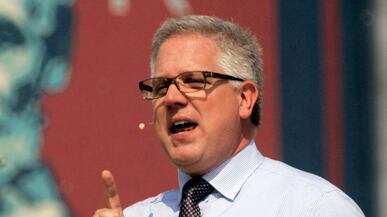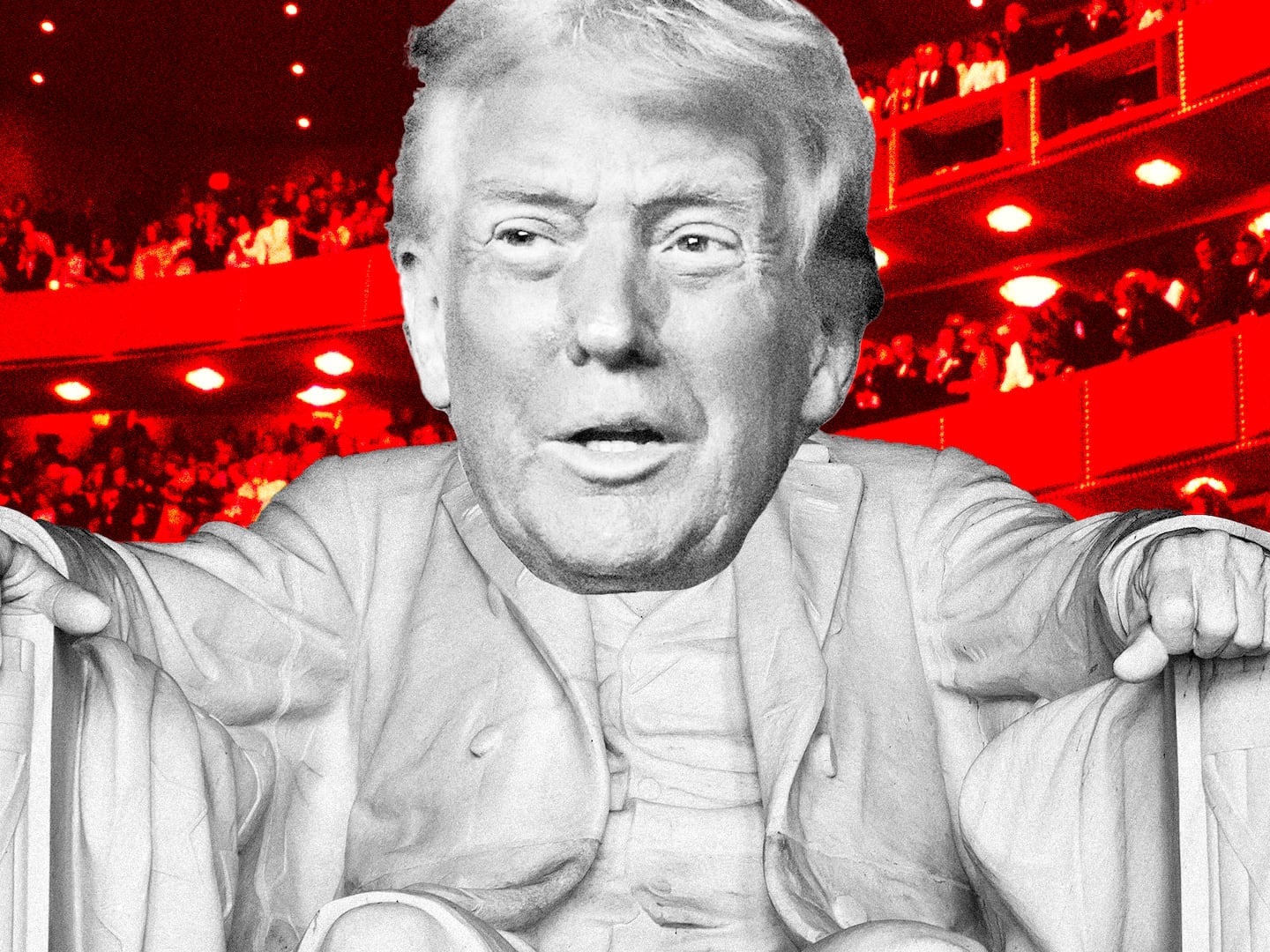The nightly nervous breakdown will not be televised.
Glenn Beck is going off the air on Fox News.
It is a remarkable reversal of fortune for a man who one year ago was banking $32 million annually, teaching Americans how to fear-monger for fun and profit.
But with his ratings down nearly 50 percent and advertisers abandoning the show, Beck’s apocalyptic shtick has been getting rancid fast.
Glenn Beck was the boy who cried wolf, constantly ratcheting up the rhetoric to get attention, and ultimately becoming a parody of himself.

It’s almost hard to remember that not so long ago Glenn Beck was being taken seriously as a political figure by hyper-partisans on the far right. The proto-Tea Party rally on Capitol Hill in 2009 was directly inspired by Beck. This past summer, he filled one-third of the Washington Mall with his faithful for what turned out to be a religious revival with political overtones, on the anniversary of the Martin Luther King’s "I Have a Dream" speech. There were even, it is now surreal to say, calls for him to run for president on a ticket with Sarah Palin—a draft movement that they had to deny.
A low-lights reel of Beck’s worst moments on Fox would take hours to watch, but it would offer a useful seminar on the politics of incitement and near-mainstreaming of conspiracy theories in the Obama era. A talented broadcaster, Beck used his perch to echo old narratives straight out of the paranoid style in American politics—sinister plots to impose one-world government, the intentional subversion of the Constitution, the oppression of the faithful at the hands of a secular socialist elite hell-bent on replacing the American experiment with tyranny. The Glenn Beck Show is the closest the John Birch Society has ever come to having their own national program, reaching millions and poisoning political debate in the process.
And let’s not forget that in the overheated, "no enemies on the right," anti-Obama environment before the 2010 midterm elections, Beck had his defenders in the GOP and conservative commentariat. Many more were content to be silent in the colluding spirit of "he might be crazy, but he’s our crazy."
But anger and anxiety are difficult to sustain for long periods of time with any degree of credibility. Demagogues do best in economic downturns. The economy has steadily (if slowly) improved and the 2010 midterm elections reduced the sense of urgency in the opposition. The American system still worked and tyranny was not descending upon our democracy, as hotly predicted. Glenn Beck was the boy who cried wolf, constantly ratcheting up the rhetoric to get attention and ultimately becoming a parody of himself.
I watched Beck’s show last night for the first time in months after hearing of his forced retirement. I half-hoped that we’d see Beck liberated from his shtick and announce that this whole time he’d been punking America by playing out the script of Network, bringing the character of Howard Beale to life as a lesson to us all. No such luck.
Instead, I saw Beck comparing himself to Paul Revere and predicting the end of the world. His chalkboards have become versions of the intricate strings connecting pins in the backyard shed of A Beautiful Mind. One prominently listed the Muslim Brotherhood, Bill Clinton, Michael Moore, Mahmoud Ahmadinejad, Bill Ayers, Frances Fox Piven, and Hugo Chavez, as Beck counseled the audience on the connections between them all just below the surface. Another board offered side-by-side comparisons of “Islamic Unrest” and “Unions, Socialists and Anarchists.”
Beck remains earnest and confessional, warning his viewers against "normalcy bias"—i.e., common sense—and complaining how he will be taken out of context. The problem is that there is no context to his stream of consciousness—it is all pinpoints and undertow, and the contradictions flow. He is still desperately practicing group polarization and selling special knowledge, like all conspiracy entrepreneurs. After a 20-minute monologue, he took his first commercial break. It was, inevitably, someone selling Gold, followed by a pitch for survival seeds to those who want to “declare food independence.”
A closing note: One year ago, when Wingnuts was published as the first BeastBook, Glenn Beck, Sarah Palin, and Keith Olbermann were put on the cover because they were the most public faces for the problem I was trying to describe—the return of the paranoid style in American politics and the cycle of incitement that was empowering the extremes while drowning out the vast vital center.
What a difference a year makes—now Keith Olbermann is off the air, Glenn Beck is slinking that way, and Sarah Palin’s poll numbers have imploded to the point where her prospective presidential campaign already sounds like a bad old joke.
It is a heartening turn of events—a reaffirmation that the American people are smart and instinctively distrust the ideological extremes of left and right. The Howard Beale howl, "I’m mad as hell and I’m not going to take it anymore," has been turned on its head—as a sign at the Jon Stewart "Rally to Restore Sanity" happily predicted: "You’re mad as hell and we’re not going to take it anymore!"
John Avlon's most recent book Wingnuts: How the Lunatic Fringe is Hijacking America is available now by Beast Books both on the Web and in paperback. He is also the author of Independent Nation: How Centrists Can Change American Politics and a CNN contributor. Previously, he served as chief speechwriter for New York City Mayor Rudy Giuliani and was a columnist and associate editor for The New York Sun.






